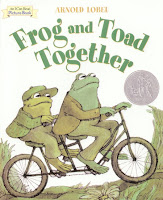This Shabbat coincides with Yom Kippur. On this holiest day of the Jewish year, we
diverge in the Torah readings. In Conservative
and Orthodox synagogues, Leviticus 16 is read in the morning and Leviticus 18
in the afternoon. The Reform movement
chose different Torah readings, Deuteronomy 29 and 30 in the morning and
Leviticus 19 in the afternoon. But we
all agree on the morning Haftarah reading, taken from Isaiah chapters 57 and
58.
In this haftarah, God tells us how we are expected to behave. The people cry out to Isaiah, “Look at us! We
fast, afflicting our bodies, we bow our heads so reverently, and we humble
ourselves wearing sackcloth and ashes.
Why doesn’t God recognize our prayer?” And God replies, in the words of
Isaiah, “Sure, here you are on Yom Kippur looking all penitent and righteous. You afflict your bodies, and you are
oh-so-fervent in your prayer. But what
are you doing with the rest of your time?
You oppress your workers. You
talk business in the pews. You go hungry
today, but you don’t care about the needy who go hungry every day. For this, you want the ear of God? Try this
instead: break the bonds of oppression, feed the hungry, clothe the naked, care
for the poor, then next year show up here and see what happens.” (Okay, those
aren’t exactly the words of Isaiah, but that is their import). God is not telling us that we should not
afflict our souls on this holy day.
Rather, God is telling us that what we do on this day is just the
beginning. It is what we do every day
that will bring God’s blessing upon us, and upon all peoples of the earth. Kein y’hi ratzon. So may it be God’s will.






